Boot from red hat iso and select install
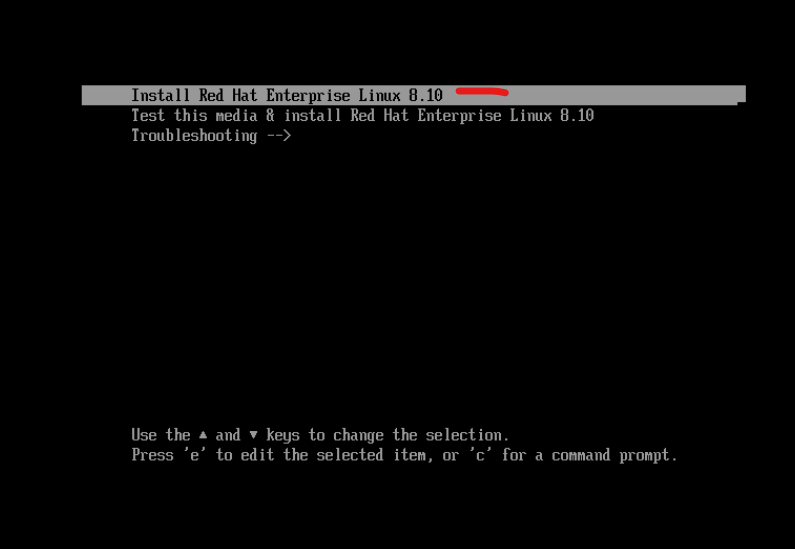
Select English and English Australia
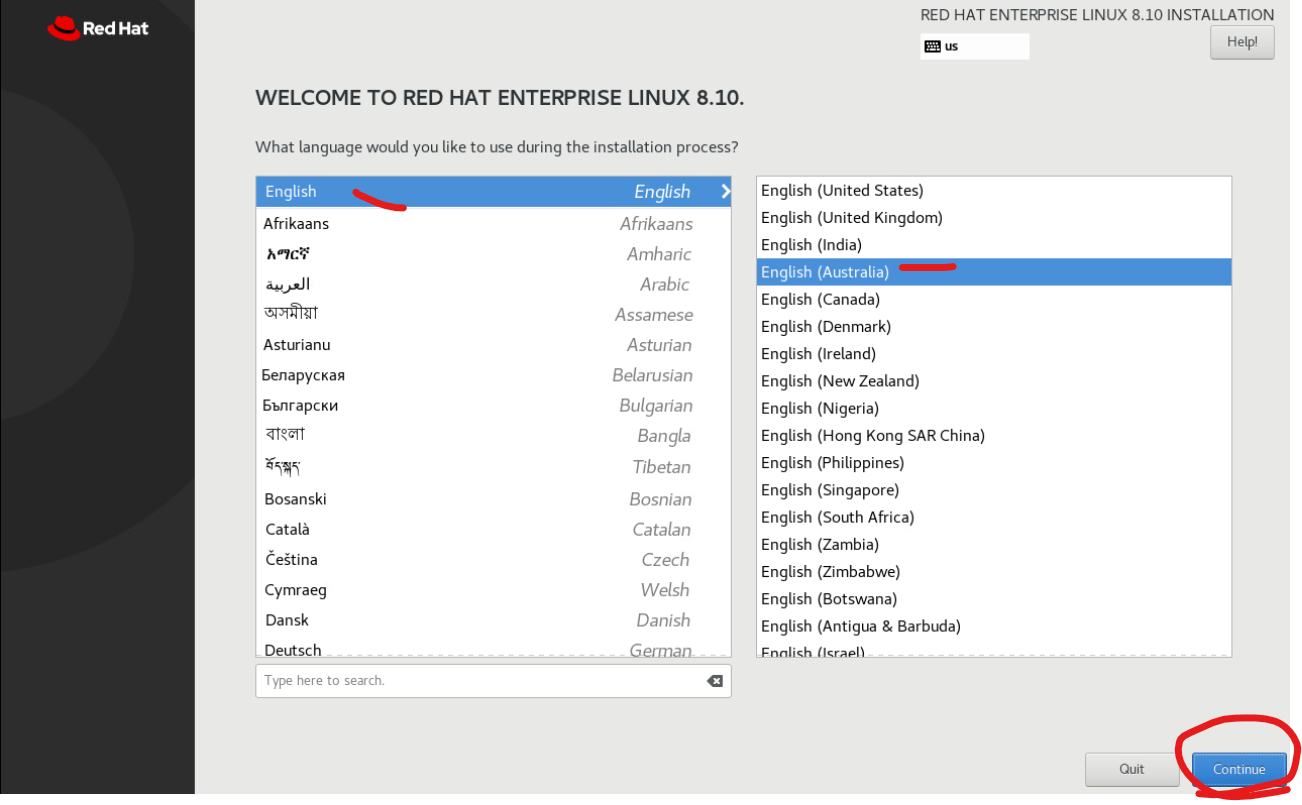
Select installation destination
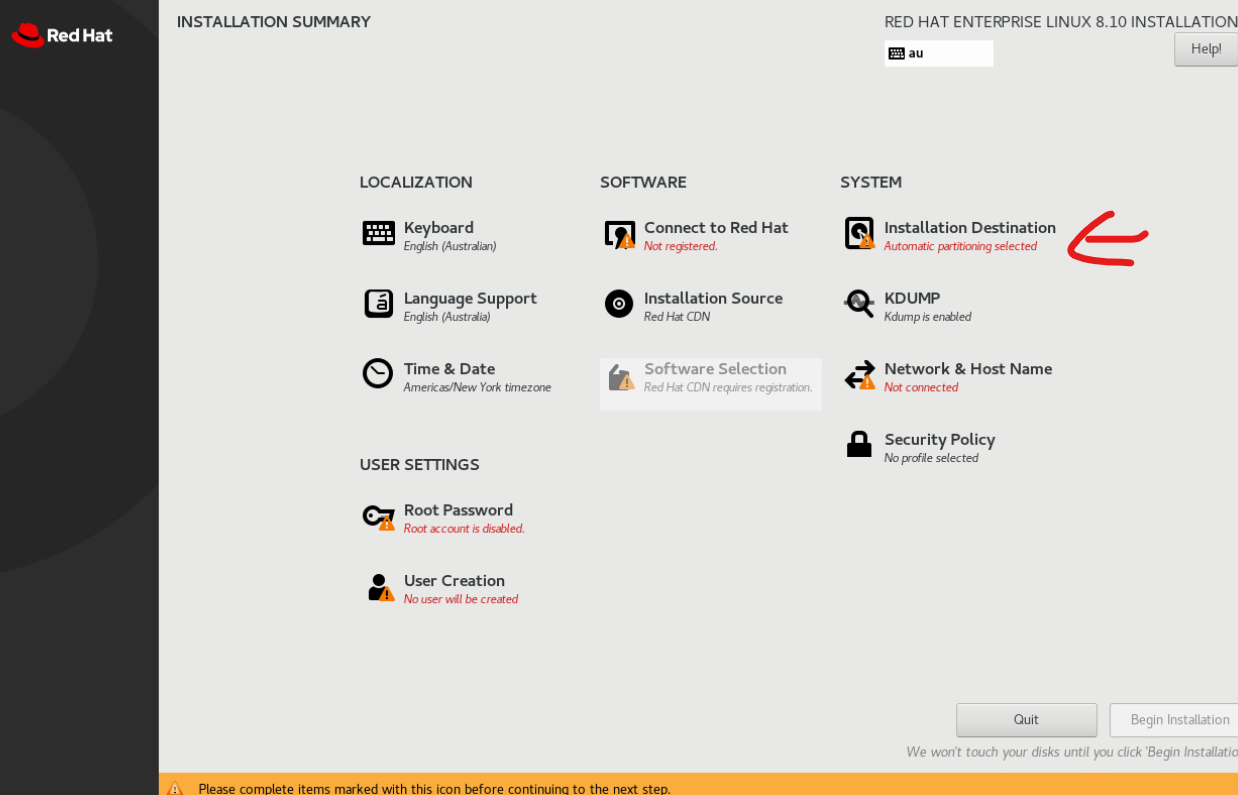
Select done
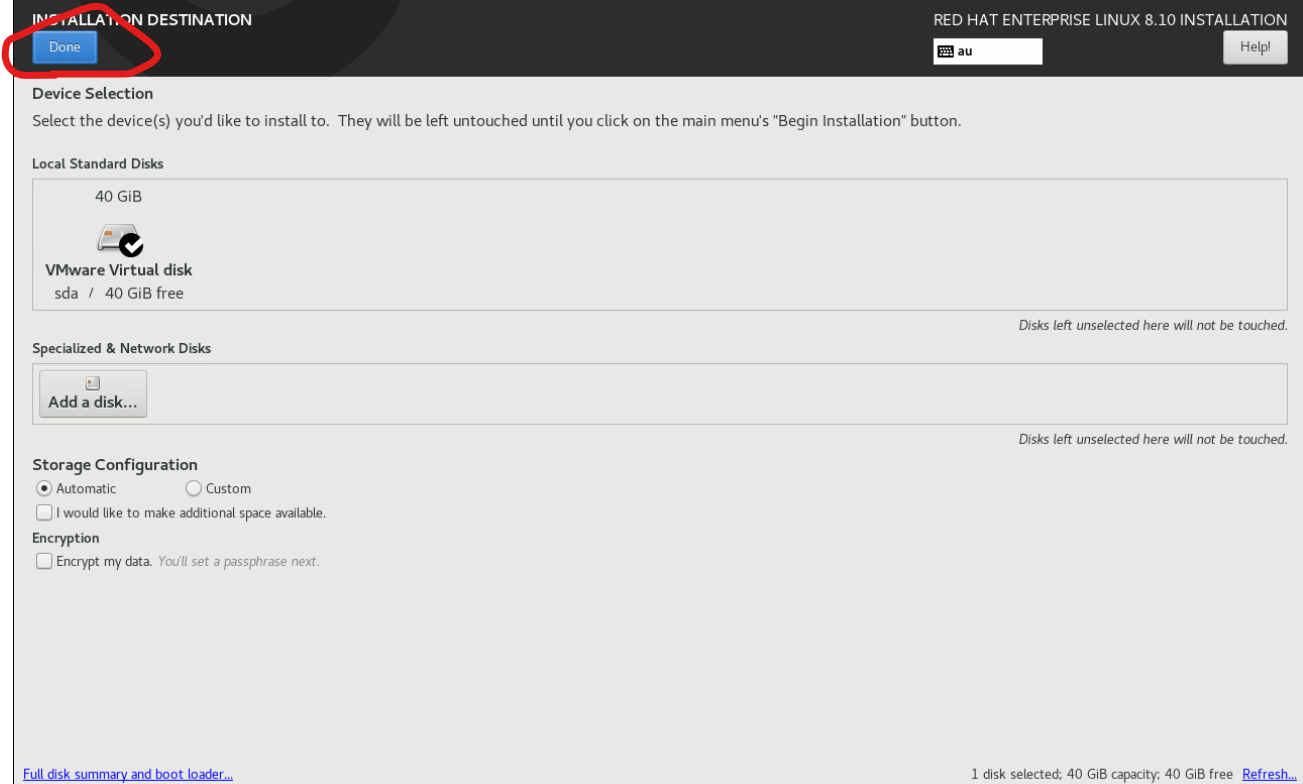
Select root password
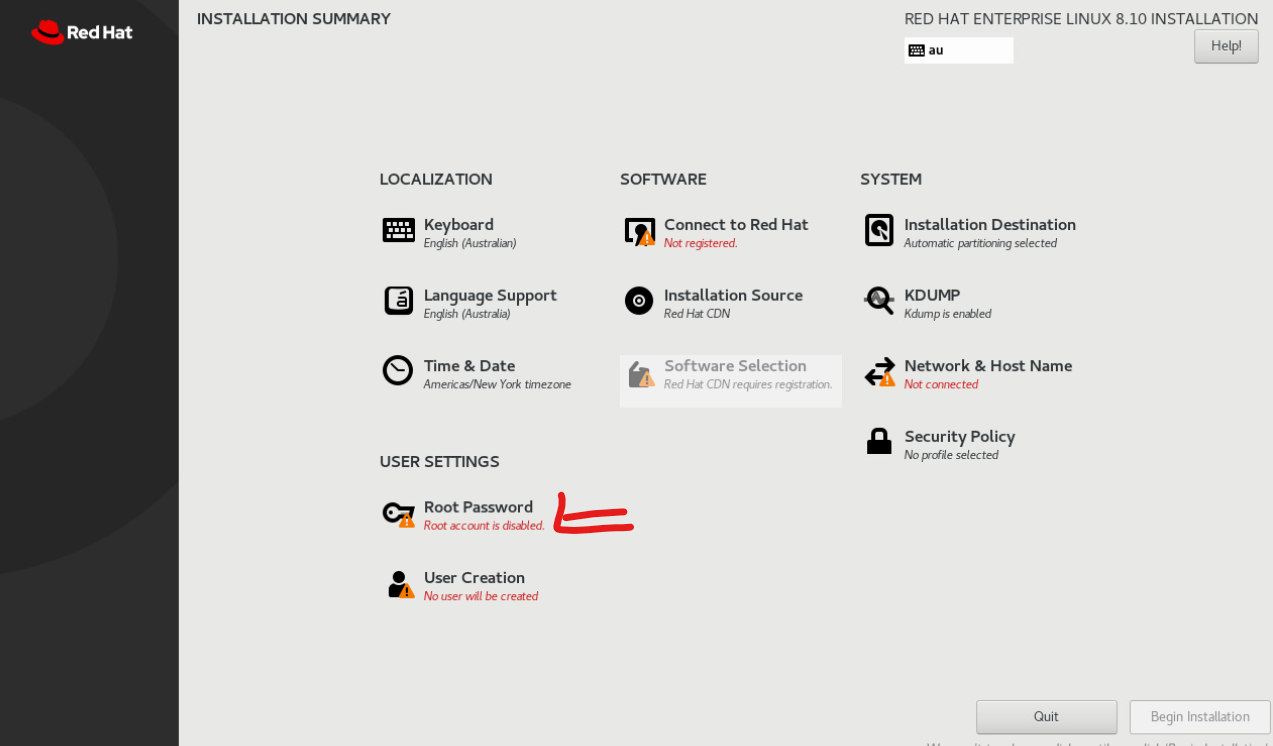
Type password
Click done twice
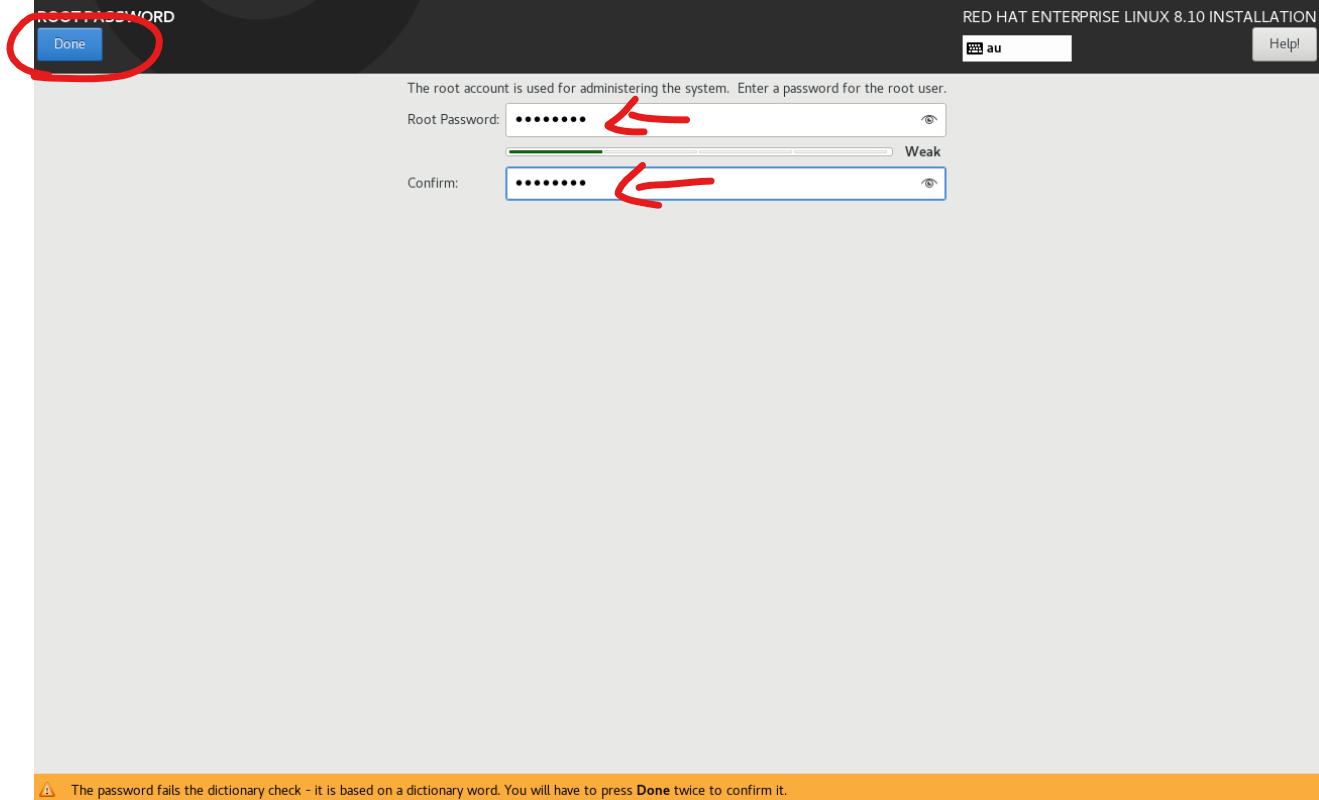
Select network and host name
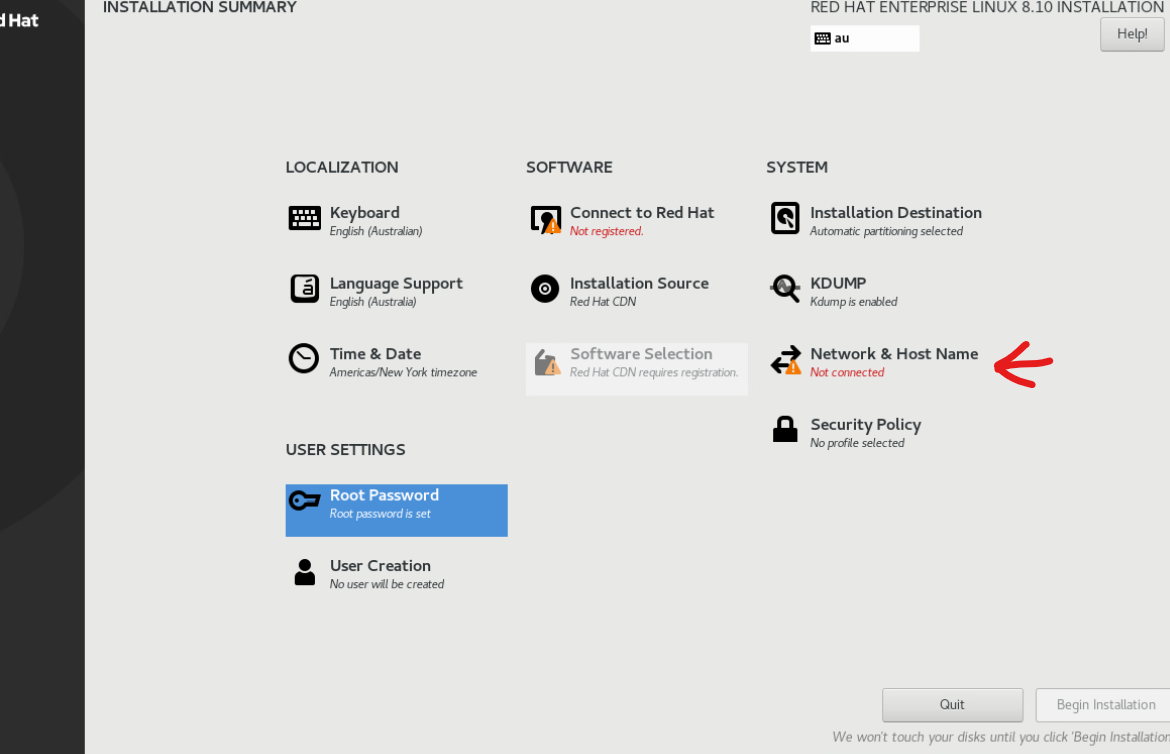
Type in host name and click apply
Click configure
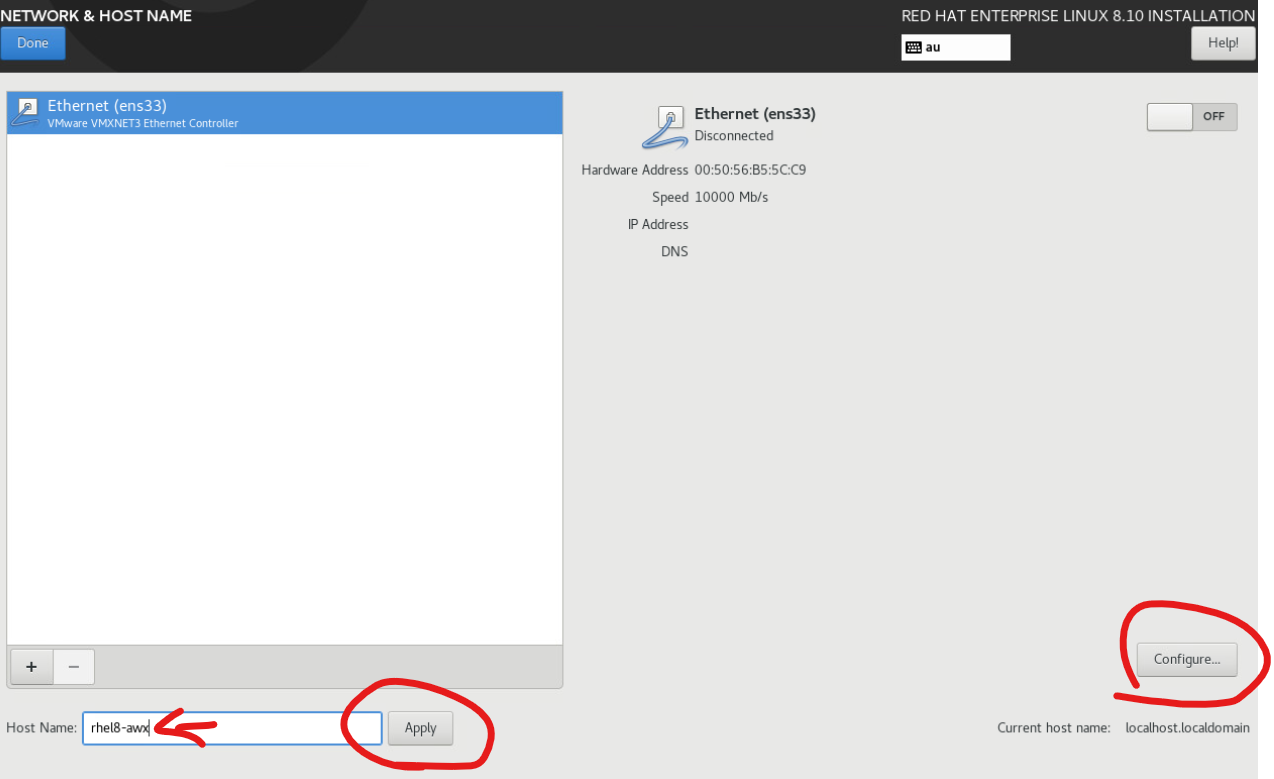
Click ipv4 setting tab
Select manual
Click add
Type in the ip details
Type in dns and domain and click save
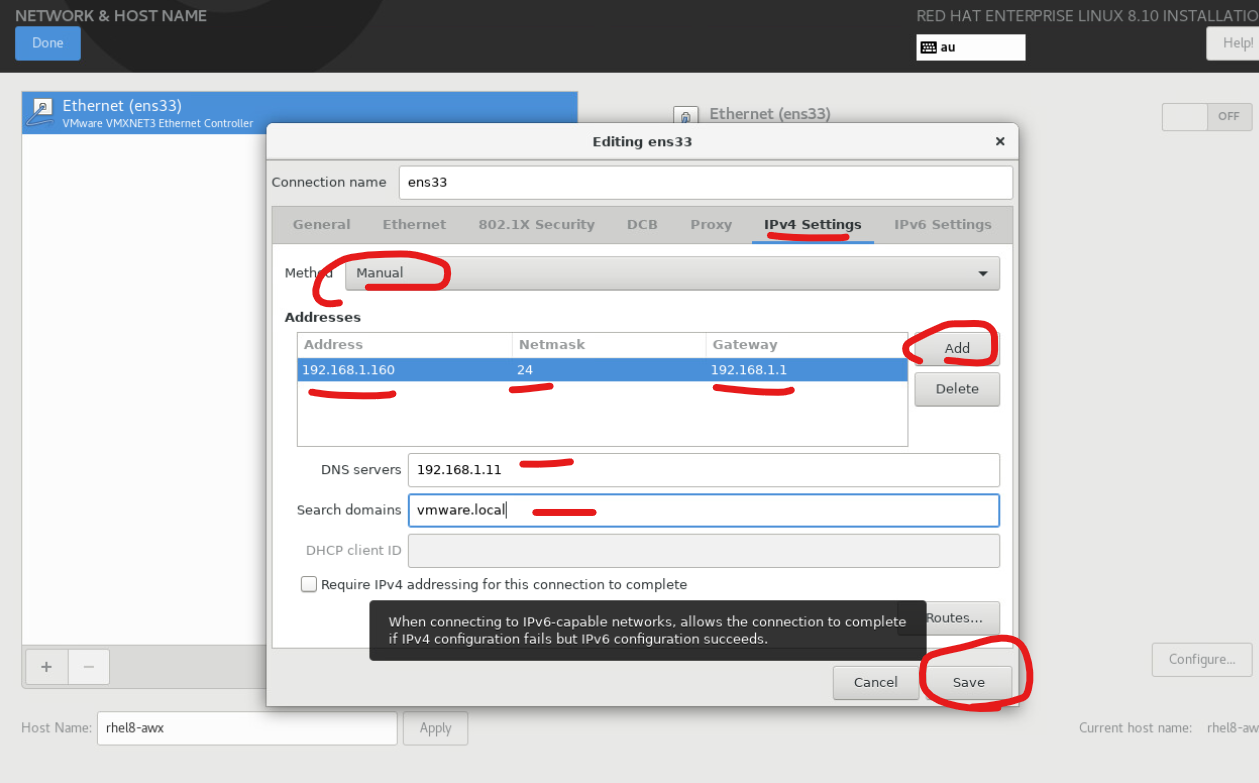
Turn nic from off to on
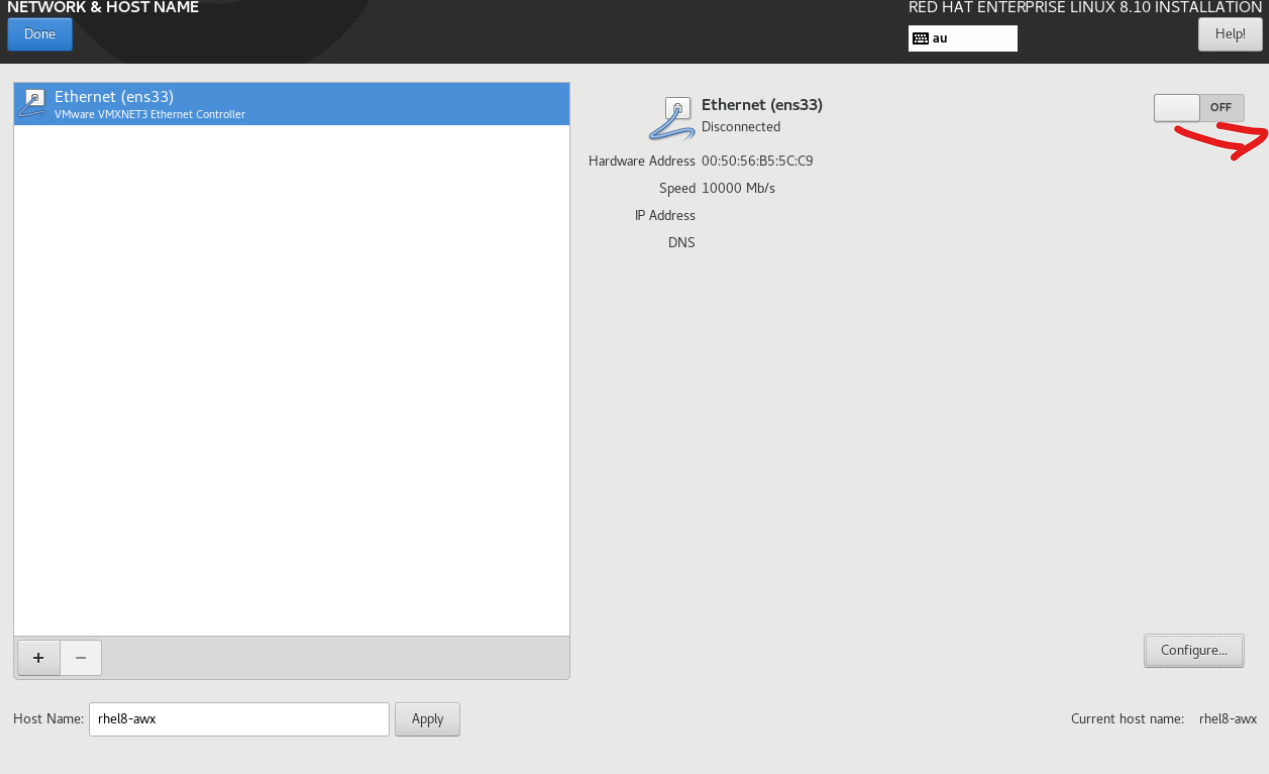
Click done
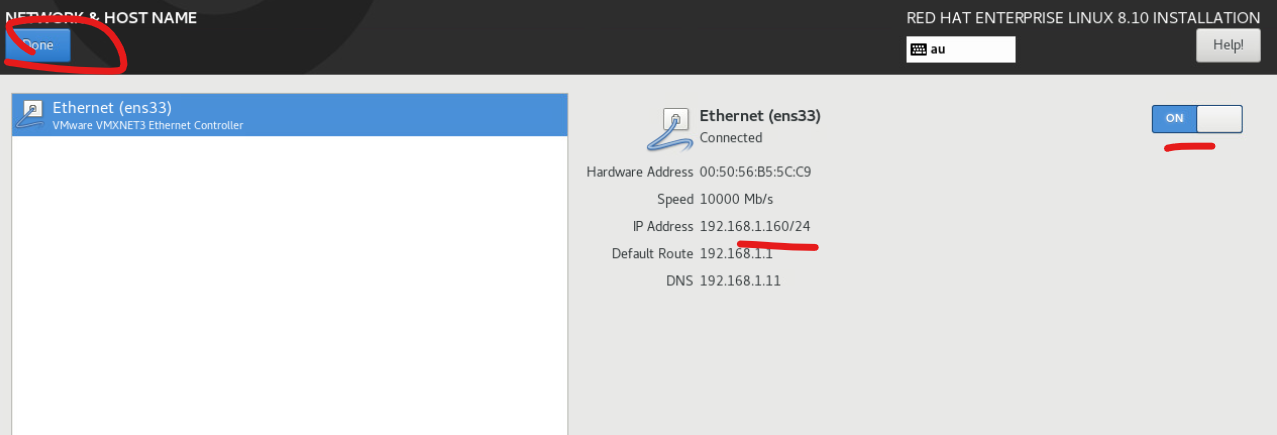
Click connect to red hat
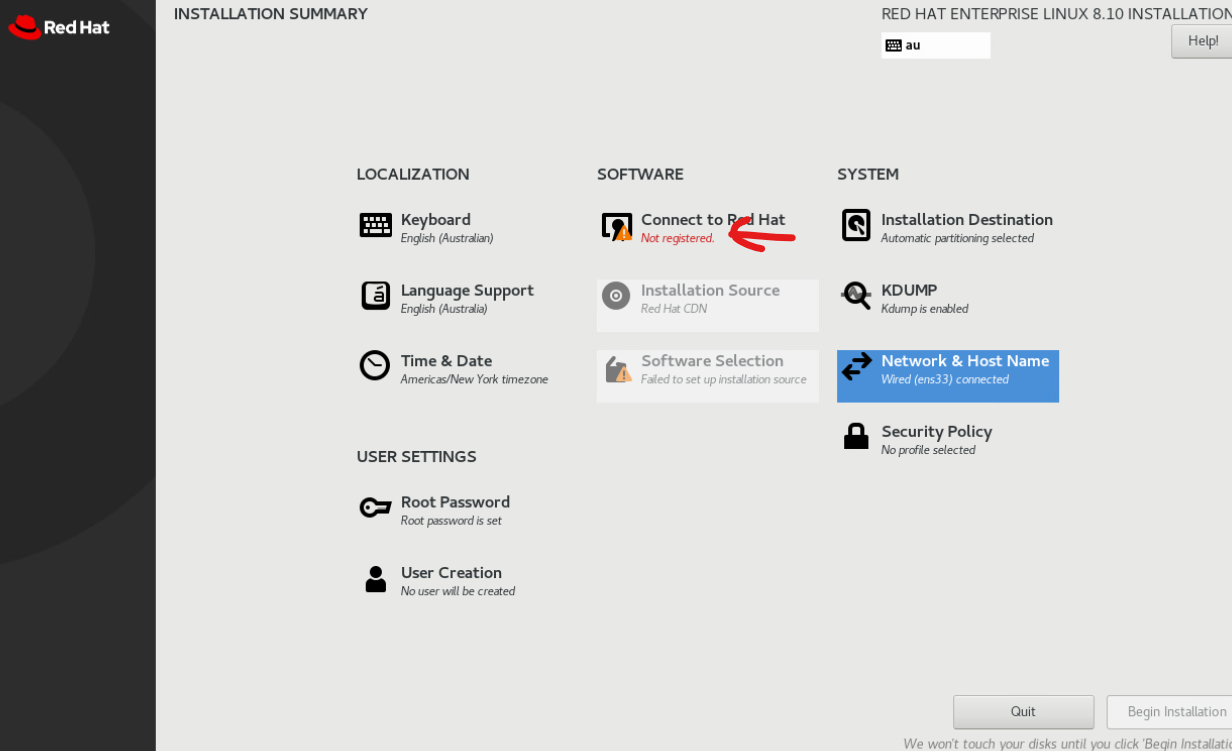
Type in account details (this is your red hat online account)
Click register
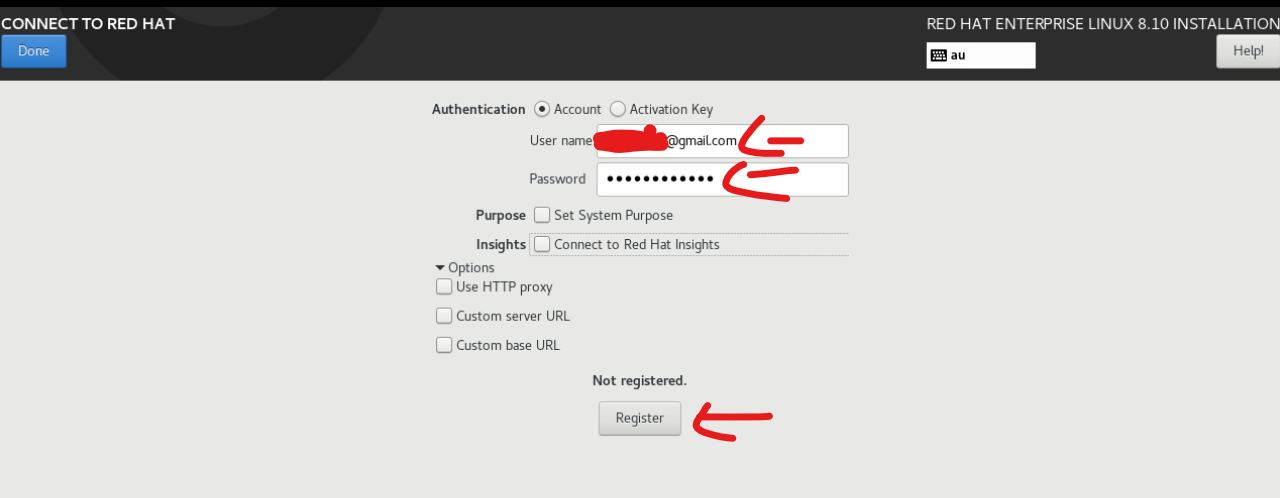
Click done
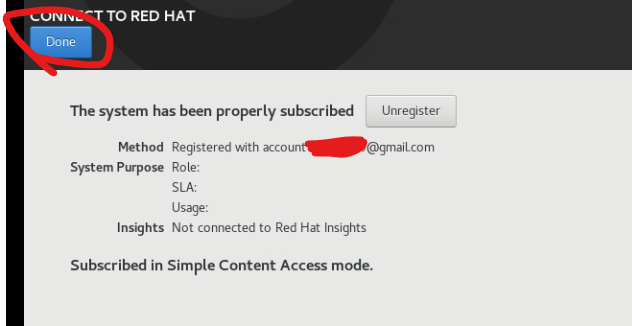
Click software selection
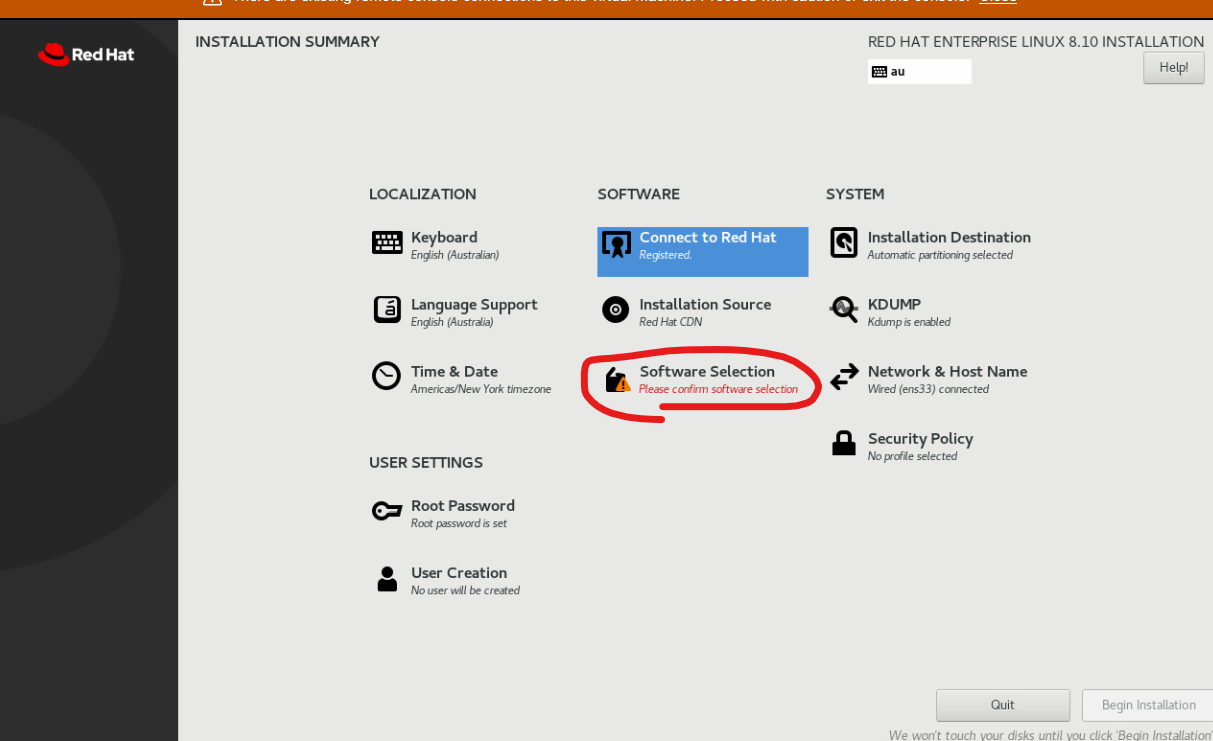
Click done
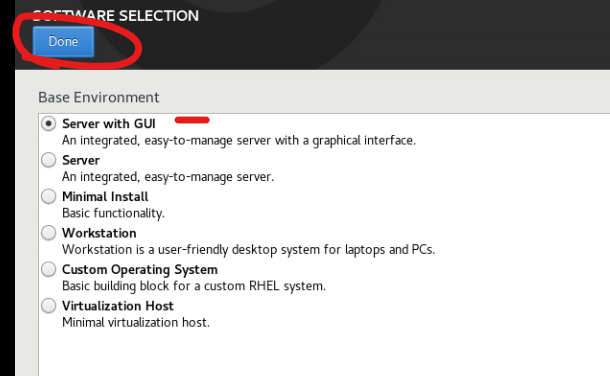
Click begin installation
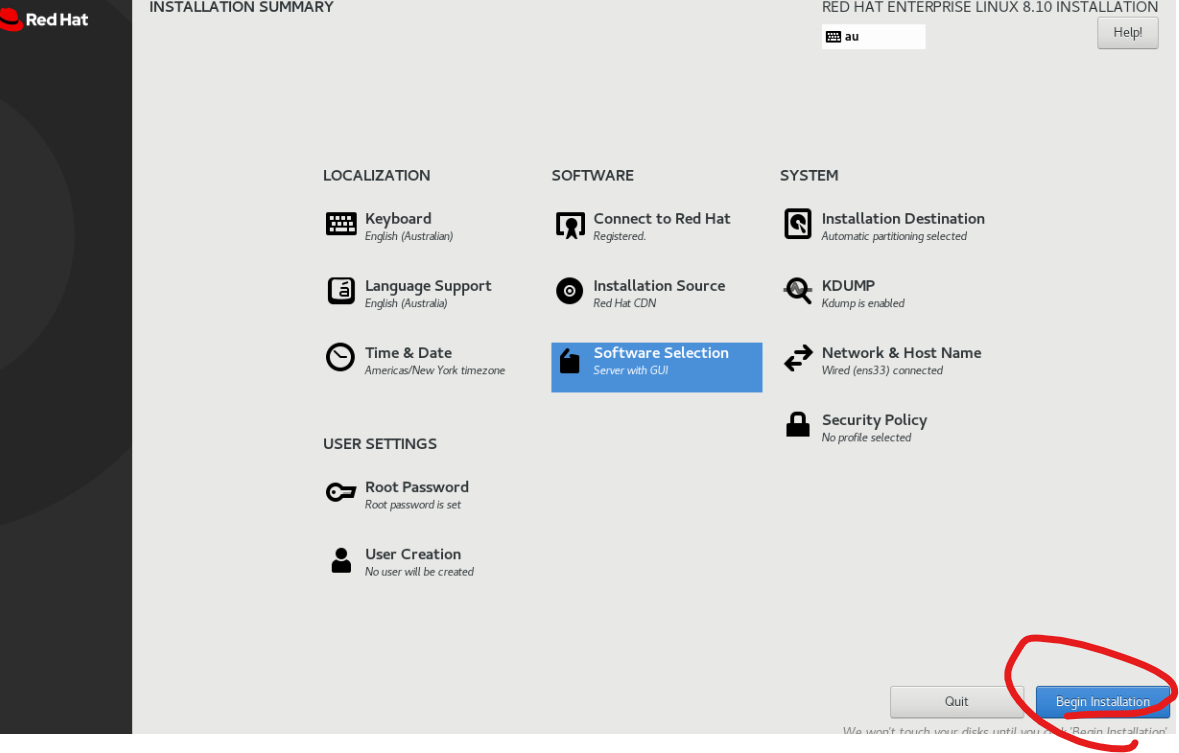
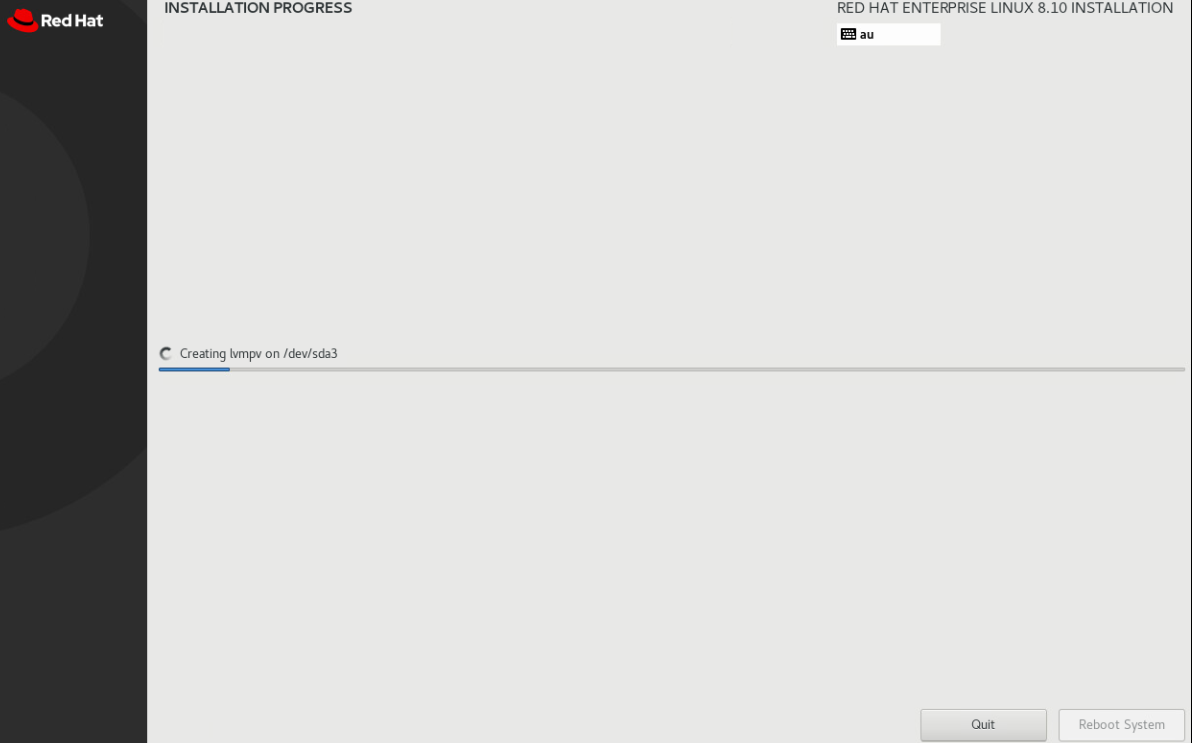
Then click reboot
Click licensing information
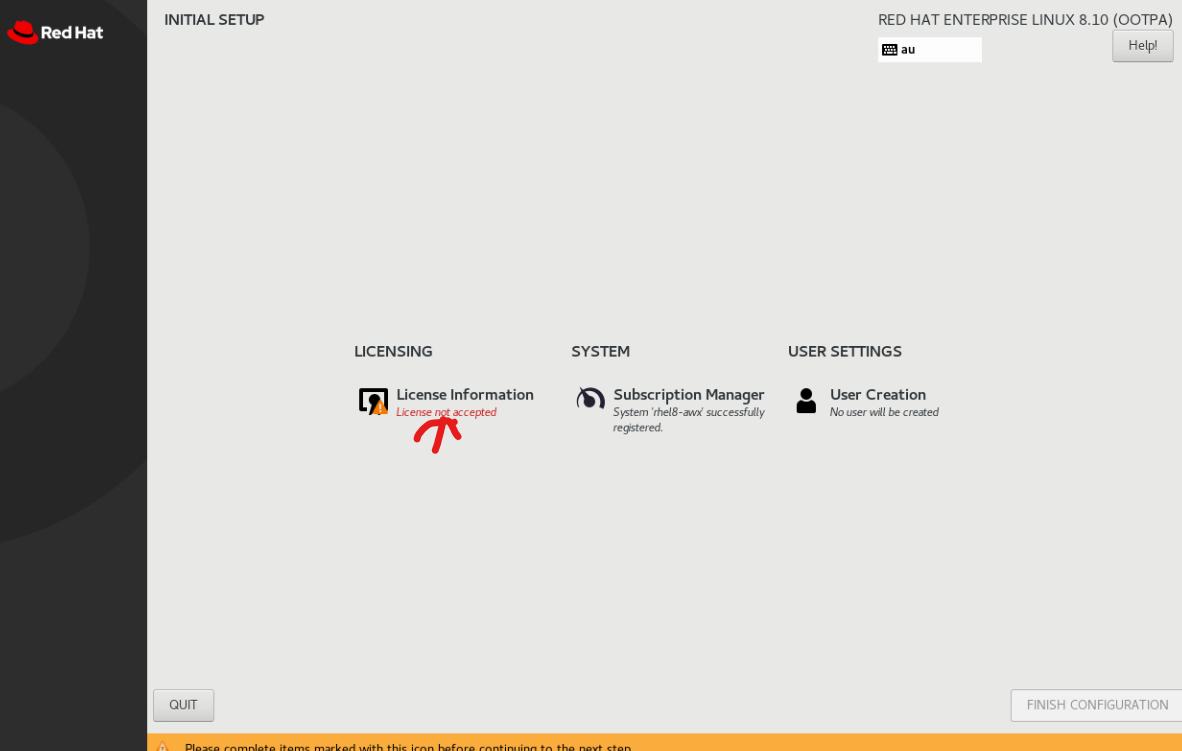
Accept agreement and click done
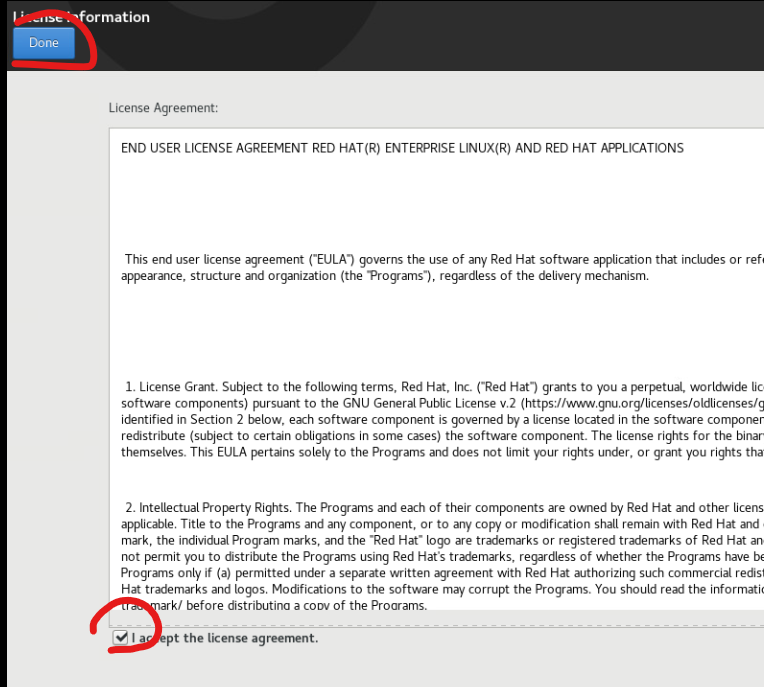
Click finish configuration
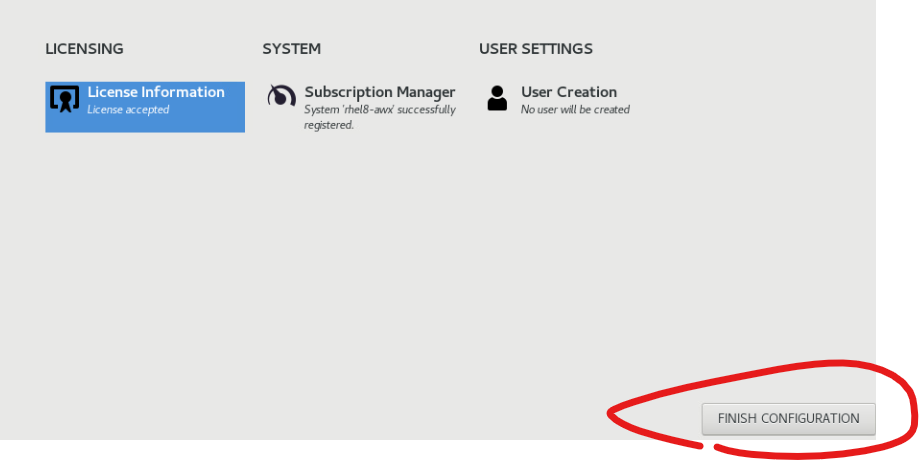
install ansible
----------------------------
sudo su -
cat /etc/redhat-release
yum repolist all | grep ansible
yum install yum-utils
yum-config-manager --enable ansible-2.9-for-rhel-8-x86_64-rpms
yum repolist enabled
yum install -y ansible
ansible --version
setup user on control node and all managed nodes
-------------------------------------------
#on control and manage nodes
useradd -m ansible
passwd ansible
echo "ansible ALL=(ALL) NOPASSWD: ALL" >> /etc/sudoers
generate ssh pair on control node and copy to manage node
----------------------------------------------
#on control node
login as ansible user
# enter the defaults
ssh-keygen
# from the control node to each managed node copy ssh key
ssh-copy-id ansible@192.168.1.151
ssh-copy-id ansible@192.168.1.130
#no password required - testing
ssh ansible@192.168.1.151
ssh ansible@192.168.1.130
create home structure and configure ansible
-----------------------------------------------
mkdir /home/ansible/plays
cd /home/ansible/plays
sudo nano myhosts
[fileservers]
192.168.1.151
[webservers]
192.168.1.130
cd /home/ansible/plays
sudo nano ansible.cfg
[defaults]
ansible_python_interpreter = /usr/bin/python3
inventory = myhosts
remote_user = ansible
host_key_checking = false
[privilege_escalation]
become = true
become_method = sudo
become_user = root
bacome_ack_pass = false
check if directory changed
ansible --version
[ansible@rhel8-awx plays]$ ansible --version
ansible 2.9.27
config file = /home/ansible/plays/ansible.cfg
# need to install ansible again because python3 and ansible was not working together when running playbooks
sudo yum -y install ansible-core --allowerasing
[ansible@rhel8-awx plays]$ ansible --version
ansible [core 2.16.3]
config file = /home/ansible/plays/ansible.cfg
#first playbook
sudo nano first-play-book.yml
---
- name: first play
hosts: all
tasks:
- name: create a new file
file:
path: /tmp/wow.conf
mode: 0664
owner: ansible
state: touch
# ensure you add the ansible user in the ssh config on the managed nodes
sudo nano /etc/ssh/sshd_config
AllowUsers ansible
